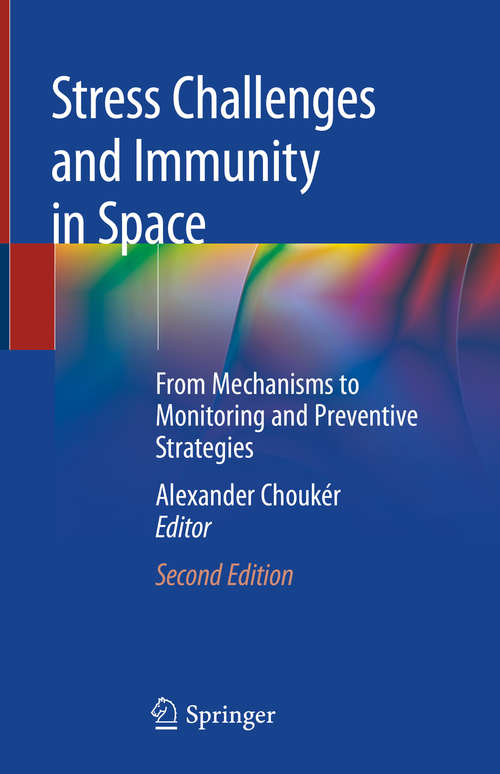Stress Challenges and Immunity in Space: From Mechanisms to Monitoring and Preventive Strategies (2nd ed. 2020)
By:
Sign Up Now!
Already a Member? Log In
You must be logged into Bookshare to access this title.
Learn about membership options,
or view our freely available titles.
- Synopsis
- This book explains how stress – either psychological or physical – can activate and/or paralyse human innate or adaptive immunity. Adequate immunity is crucial for maintaining health, both on Earth and in space. During space flight, human physiology is specifically challenged by complex environmental stressors, which are most pronounced during lunar or interplanetary missions. Adopting an interdisciplinary approach, the book identifies the impact of these stressors – the space exposome – on immunity as a result of (dys-)functions of specific cells, organs and organ networks. These conditions (e.g. gravitation changes, radiation, isolation/confinement) affect immunity, but at the same time provide insights that may help to prevent, diagnose and address immune-related health alterations. Written by experts from academia, space agencies and industry, the book is a valuable resource for professionals, researchers and students in the field of medicine, biology and technology.The chapters “The Impact of Everyday Stressors on the Immune System and Health”, “Stress and Radiation Responsiveness” and “Assessment of Radiosensitivity and Biomonitoring of Exposure to Space adiation” are available open access under a Creative Commons Attribution 4.0 International License via link.springer.com.
- Copyright:
- 2020
Book Details
- Book Quality:
- Publisher Quality
- ISBN-13:
- 9783030169961
- Related ISBNs:
- 9783030169954
- Publisher:
- Springer International Publishing
- Date of Addition:
- 12/07/19
- Copyrighted By:
- Springer
- Adult content:
- No
- Language:
- English
- Has Image Descriptions:
- No
- Categories:
- Nonfiction, Technology, Medicine
- Submitted By:
- Bookshare Staff
- Usage Restrictions:
- This is a copyrighted book.
- Edited by:
- Alexander Choukèr
